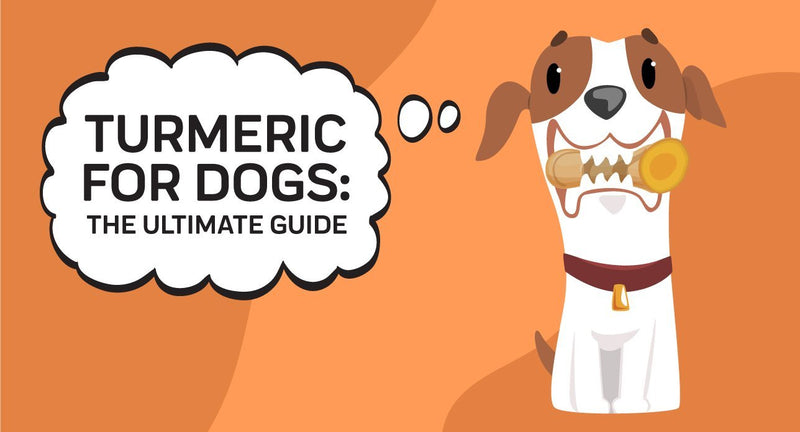If you are here, then you are likely wanting to learn about Clomicalm, also known as Anafranil. Maybe you are researching it after having it prescribed for your pet, or you are just wondering what exactly it is. At Innovetpet, we always encourage pet owners to learn as much as they can about anything that they are going to give their pet. This is especially true for prescription medications like Clomicalm as they often come with side effects and other concerns that pet owners need to know about.
Clomicalm for dogs is prescribed for the treatment of anxiety. It contains the active ingredient known as "clomipramine," and it is a serotonin-norepinephrine reuptake inhibitor. The formulation contains the active ingredient "clomipramine," which is a type of serotonin-norepinephrine reuptake inhibitor. It is classified as an anti-depressant that helps with anxiety. It has been approved by the FDA as a prescription for certain pets that a veterinarian has reason to believe would benefit from it.
When used as part of a comprehensive behavioral management program, Clomicalm can help to reduce the severity of behavior problems in dogs that are caused by anxiety.
- Clomicalm For Dogs: What Is It For?
- Clomicalm For Dogs: What Should I Know?
- Clomicalm For Dogs: Side Effects
- Clomicalm Dosage For Dogs: How Much To Give My Pet?
- Contraindications of Clomicalm In Dogs
- Behavioral Treatments For Separation Anxiety in Dogs
- Are There Other Treatments For Separation Anxiety?
- Clomicalm For Dogs: Is It Right For My Pet?

Clomicalm For Dogs: What Is It For?
Clomicalm for dogs is meant to help with behavioral management and in managing symptoms of anxiety in pets. There are several canine health conditions in which it may help:
Separation Anxiety in Dogs
Dogs are prescribed Clomicalm to treat separation anxiety and is typically part of a larger treatment plan. For example, behavioral management therapy is often recommended as part of a larger treatment plan to help a pet manage their anxiety. The veterinarian can go over behavioral management with you and explain what that entails so that you are fully informed on what to do to manage this condition.
Clomicalm for dogs is sometimes given in cases of separation anxiety. Separation anxiety is what happens when a pet gets very anxious when they are alone or without their pet parent. Dogs are extraordinarily loyal and attached to their pet parents, and some dogs are very sensitive about feeling as though they are left behind. This is why some dogs develop separation anxiety. However, it is important that a pet parent differentiates between separation anxiety and a dog simply acting out.
Sometimes this may require a veterinarian to help as they have the knowledge and tools needed to diagnose separation anxiety. One fundamental way to tell if it is indeed separation anxiety is if the pet displays behavior that is anxiety-ridden when their pet parent or other close loved one isn't around. For example, if the pet whines and barks a lot only after their key person leaves the home, it could be a sign that they do indeed have separation anxiety.
Destructive Behavior Issues
Many dogs have destructive behaviors. However, some dogs have worse destructive behaviors than others. For example, if they chew up and destroy most anything that they can, then it is likely that they have a high level of destructive behavior. Clomicalm can be prescribed to help with destructive behavior issues to help them with that as part of the more extensive treatment plan. Dogs that have destructive behaviors should have behavioral management therapies and methods in place in conjunction with Clomicalm for dogs. Behavioral management techniques can make a significant impact on their long-term behavior and improve them dramatically.
Unusual Elimination Patterns
Unusual elimination of urine or feces by dogs is an indicator of behavioral problems or anxiety. Pet parents that notice their dog going to the bathroom in a bizarre manner may have cause for concern, especially if this is a new behavioral pattern. A veterinarian may prescribe Clomicalm for dogs if they feel that their unusual elimination patterns could be helped with it. Seeking out a veterinary appointment after noticing unusual elimination patterns is highly recommended. It may or may not be behavioral in nature. It could be that they have a bladder or incontinence issue that

Clomicalm For Dogs: What Should I Know?
Clomicalm is a medication that is prescribed by veterinarians to treat behavior problems in dogs. It is classified as a tricyclic antidepressants and works by blocking serotonin and norepinephrine neurotransmitters. Clomicalm is not the only medication in this class, but it is the only one that is specifically FDA-approved for use in dogs.
Other tricyclic antidepressants may be used off-label to treat behavior problems in dogs, but they come with a higher risk of side effects and drug interactions. When used as directed, Clomicalm is safe and effective at treating behavior problems in dogs.
It has an active ingredient of clomipramine hydrochloride. The common prescription formulations are 80, 40, 20, and 5 milligrams. The amounts given to dogs will vary on their size and weight. The veterinarian will let you know what dosages to provide your pet if they prescribe it.
It is essential to get a medical examination done by a vet prior to giving Clomicalm for dogs to your furry friend. They will need to be checked thoroughly so that any medical issues can be documented. This is because your veterinarian will need this information to accurately diagnose and assess your pet for a possible prescription medication and behavioral modification program.
Underlying medical issues can make it dangerous for your pet to take certain drugs and could make it impossible for your pet to be given Clomicalm. For example, high blood pressure could make it unsafe for your pet to be given Clomicalm for dogs. Also, conditions that are chronic and affect major organs could make your pet an unlikely candidate for this medication. This is because it could cause your pet's health to worsen.
Veterinarians will need to be able to have all of this medical information to decide whether or not they can prescribe Clomicalm to your dog and is why it can only be prescribed under the care of a trusted veterinarian that has access to your pet's medical history.
Clomicalm For Dogs: Side Effects
Understanding the possible side effects of Clomicalm for dogs is imperative. Pet owners should be informed of any and all side effects that their dog could suffer from. This is because it gives pet parents that opportunity to look out for any troubling issues that could arise and make critical medical decisions on behalf of their beloved furry friend.
Some of the known Clomicalm for dogs side effects are:
- Lethargy
- Aggression
- Seizures
- Diarrhea
- Excessive dry mouth
- Polydipsia
- Tremors
- Constipation
- Anisocoria
- Polyuria
- Hyperthermia
- Emesis
These possible side effects have been shown in some dogs that have taken Clomicalm for dogs. This is especially concerning to pet parents that want to ensure that their dogs are as healthy as they can be. Being an informed pet parent is highly recommended and can help you make the best medical decisions you can for their health.
It is important to watch out for allergic reactions in your pet. For example, swollen lips or glands in the body are indicators that your dog may be having an allergic reaction to Clomicalm for dogs. Also, never give your pet more than the prescribed dosage. If you do accidentally give your pet too much of a medication, it will be essential to get them to an emergency veterinary appointment as soon as possible.
Emesis is also especially worrying. Emesis is the technical term for anorexia. Some dogs develop anorexia and will not eat enough food. This side effect is severe and one that should be followed up with a veterinarian immediately. If your pet loses a lot of weight or shows lesser interest in eating, then they may be experiencing emesis and should be seen by their trusted vet right away.
Lethargy as a side effect is when they are more listless and tired than usual. You may notice that your pet is uninterested in playing, going for walks, or doing the things that they usually enjoy. This is a worrying side effect for pet parents that are used to seeing their dog full of playful energy.
Aggression is one of the possible Clomicalm for dogs side effects that is also very worrisome. If your pet is normally carefree and laid-back and they begin displaying unusually aggressive behavior, it will be important to speak to the veterinarian as soon as possible. No pet parent wants to see their ordinarily sweet dog become an aggressive one. It is also unsafe for both the people and the pets in the home. This is a side effect that needs to be reported immediately.
It is vital to discuss any concerns that you have with your veterinarian. They will be

Clomicalm Dosage For Dogs: How Much To Give My Pet?
Dosages of Clomicalm for dogs will vary on your dog's weight, health, and age. Recommendations for dosages of Clomicalm are that they are given .9 to 1.8 mg per pound of body weight. This variation is based on a number of factors and is why it is recommended to follow the prescription dosage instructions. Follow your veterinarian's instructions to the letter when giving your pet Clomicalm and always follow the recommended dosage.
Never give your pet a double dose if you miss a dose. This can cause health problems and even an overdose. You should call your vet right away if you think you gave your dog too much Clomicalm as they may recommend that you bring them in for
Contraindications of Clomicalm In Dogs
Contraindications are things that make it unlikely that your dog can take Clomicalm. For example, you should not give your dog Clomicalm tablets if they have known hypersensitivity. Also, clomicalm for dogs should never be used in breeding male dogs since it may shrink testicles if given at high doses. They can develop a condition called testicular hypoplasia. Other
Clomicalm Should Not Be Used In These Circumstances

Behavioral Treatments For Separation Anxiety in Dogs
Behavioral treatment is often recommended for dogs that have separation anxiety or anxiety-related disorders. It can help them cope better when they are in situations that may aggravate their anxiousness. Separation anxiety behavioral treatment can be done by counter-conditioning. Some things that you can do treat this are associate being alone with a delicious treat. For example, before you leave the home, you can begin giving your dog a special treat that they love. This may help relieve their anxiety and provide them with the chance to associate your leaving with something positive that they will receive. It could help soothe their worries that you are going and give them the reassurance that they need. For dogs that aren't so excited about treats may be able to be given toys as a substitute. Let them have their favorite toy when you are about to leave so that they may be able to associate their favorite toy with your going.
Dogs with more severe forms of anxiety or separation anxiety may require a professional that can work with them. In these cases, there are professionals called CAABs (Certified Applied Animal Behaviorist). A certified applied animal behaviorist can help you and your pet in more severe cases as they have the experience required to do so. There are also board-certified veterinary behaviorists that are licensed professionals in helping dogs with their anxiety-related behaviors.
In some cases, people may seek out a professional dog trainer. Professional dog trainers have become quite popular in recent years. However, not all of them have the necessary tools and experience to truly be able to help in severe cases of separation anxiety. It is recommended only to hire professional dog trainers that have extensive knowledge and experience in this field, and that can prove their expertise through testimonials from other pet parents.
Behavioral treatments should always be used to help deal with anxiety-related disorders in pets. Medications alone are usually not sufficient to treat this medical
Are There Other Treatments For Separation Anxiety?
Natural options that can really help your pet are out there. CBD has become well-known for helping humans that have anxiety and other health issues. The good news is that CBD has also shown to have the same positive effects in pets. There is even CBD Oil For Dogs now that is natural and organic and made from hemp extract. This all-natural oil is 100% safe and free of chemicals. It is entirely legal and free of THC. Being free of THC means that there is no "high" that your pet will have, and pet parents do not have to worry about that at all. CBD itself has shown in studies to benefit people and pets that have anxiety, seizures, pain, nausea, or inflammation. This makes it a great option for pet owners that want to give their dogs something organic and free of added chemicals. It also allows for more choice than just prescriptions that could have damaging health consequences for dogs. No side effects have been shown for people or dogs that use CBD for its healing qualities. There are other treatments for conditions like separation anxiety in dogs than Clomicalm. People can use all-natural products and options to help their pet. Some simple things that you can do are giving your pet higher quality food, playing them calming music, exercise them more often in the outdoors, and even give them a piece of your clothing to lie on or smell. These little things can go a long way toward helping your pet.

Also, pet parents can give their anxious pets CBD Hemp Dog Treats. CBD hemp dog treats are organic and all-natural and are available in some popular flavors that are popular among dogs. The treats are made from hemp extract and have no known side effects. This means that you can give your dog something that benefits their health through and through and doesn't come at the high cost of worrisome and debilitating side effects. Many pet parents have seen their pets have vastly improved health with
Clomicalm For Dogs: Is It Right For My Pet?
Clomicalm for dogs has been shown to be an effective treatment for behavioral problems and separation anxiety in dogs. It is an FDA approved drug and can be prescribed by veterinarians. It can help some dogs tremendously in dealing with their anxiousness and behaviors. Clomicalm for dogs works best in dogs that are also engaging in behavioral treatments. Most veterinarians will only prescribe Clomicalm for dogs when they feel it will be beneficial to the pet and is used in combination with behavioral therapies.
However, the question of whether Clomicalm is right for your dog is something only you can know. Pet parents are the ones that are around their furry friends the most and know their dogs the best. It is certainly recommended to research Clomicalm for dogs in great detail, listen to the advice of your dog's trusted veterinarian, and use your own judgment.
The side effects are probably the biggest concern for pet parents. This is why natural options are good to have and are important to consider as part of your pet's treatment. Many pet owners are hesitant to give their dogs prescriptions, and that is quite understandable. The only one that can answer the question of whether Clomicalm is right for your dog is you.

















